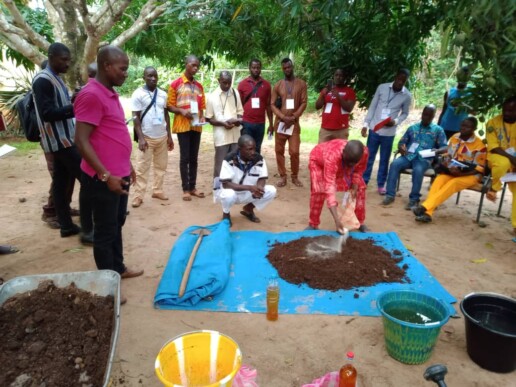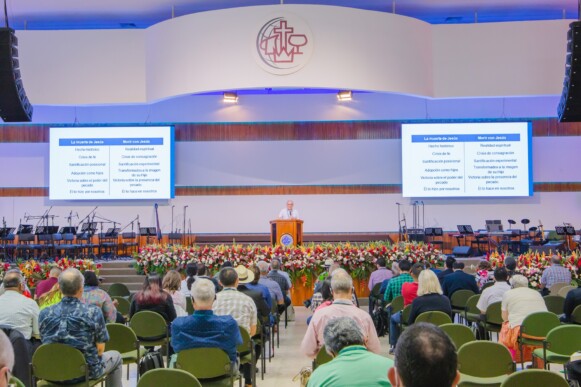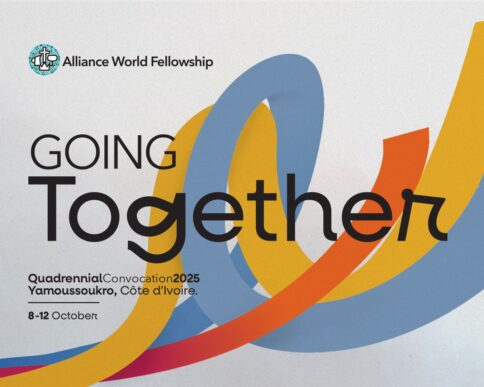Theological Training for Emerging Generations

Related News

New Year’s Message

Embracing Our Sacred Calling: Catalysts for Justice and Ambassadors of Love

The Guayaquil Manifesto – Challenges
In the Guayaquil Manifesto (October 2021) of the Alliance World Fellowship, two challenges related to ministerial training in the coming years are pointed out:
- Emerging Generations: redefinition of ministerial vocation; changes in the concept of missionary vocation; changes in their desire for preparation for ministry; the emergence of personal spiritual experience in contrast to rationality.
- Training: innovation in the theological training of workers, creating new forms of continuous training to prepare and equip those called to Christian ministry.
In this article, I will explore these two points from the perspective of the global south, particularly Latin America, seeking to indicate new alternatives of theological education to the traditional and Western training that has been the norm during the last century. The great changes brought by the digital age in which we live, along with an increasingly mobile population, migratory waves, social upheavals, and the economic situation, are affecting the way we conceptualize the training of those who are called to ministry. How should we reach and instruct our future pastors and church leaders in this context? First, I will point out some current trends in this field, and second, I will present some challenges for the church in this historical moment in which we are living.
1. TRENDS IMPACTING THEOLOGICAL EDUCATION
A first trend is the emergence of non-denominational evangelicalism linked especially to independent Neo-Pentecostal churches. Some studies indicate that almost 70 percent of Latin American evangelicals consider themselves part of this movement, which at present studies reveal to be around 18-20 percent of the general population. This evolution has resulted in significant changes in how institutional leaders approach their future ministers’ recruitment and training. While historically most Bible colleges and seminaries were founded by a particular denomination, today an increasing fraction of students choose schools without necessarily looking at their denomination, but rather considering other elements such as the quality and reputation of the seminary, the cost, and length of the programs, and to this must now be added the offer of online courses.
A second trend is related to this growth of the evangelical sector, which has generated a high demand for pastors and personnel for more specialized leadership roles that did not exist before. The diversity of ministries and areas of service in both churches and parachurch organizations has multiplied, and seminaries have not yet found a way to update their curricula to meet these requests. Until now, theological education has been oriented towards the training of the traditional pastor-in-charge of all the functions in the church, and not necessarily in the training of workers for diverse and specialized ministries.
A third trend is the training of strategic alliances and networking. This is mainly among the younger generations who seek such partnerships to go out on missions, serve in crises in other parts of the world, and perform tasks that are not classic to the general standards of a church. Many have professional training, but very few have a seminary or biblical-theological instruction. This is where churches and seminaries are partnering with other institutions to integrate their ministry programs into their curricula.
A fourth trend is the incorporation of new technologies in seminaries. Today, many people want to serve in ministry, not full time, but as bi-vocational workers. How to train them ministerially? The most appropriate would seem to be through online programs that allow them to obtain their training while continuing with their work. These courses use modern methods and technologies that are not the norm in face-to-face studies where the “master class” is still the most practiced. COVID-19 has just accelerated the pace of adoption of online teaching that would otherwise have taken years to settle in our seminaries.
The C&MA in Latin America is not immune to these trends, so the rectors of the Bible seminaries have been exploring the possibility of forming a consortium of allied theological institutions to take full advantage of the opportunities that all these trends bring with them.
2. CHALLENGES FOR THEOLOGICAL EDUCATION POST COVID-19
The achievements of the past generation have undoubtedly given shape and continuity to the development of our theological institutes, and it is up to this generation to read the times well to continue advancing steadily in the years to come. The religious panorama in Latin America is uncertain in many ways, for we are particularly facing a biblical and theological illiteracy that has not been so obvious in the past. This means that theological education must adapt to a “mission context”, as some studies show. In a continent where evangelical churches have grown exponentially, how can this be explained? In part, it is due to the lack of biblical instruction in the churches, since the Sunday School – once the educational structure that taught Bible and doctrine in the local congregations – no longer has the same relevance today, which leaves the teaching of the Scriptures limited to Sunday preaching, which is generally not characterized by its depth and doctrinal seriousness.
For the Latin American Christian and Missionary Alliance, the preparation of workers is a more urgent task today than ever before, because apart from the precariousness of biblical knowledge of believers in general, it is also important to note that the church has gone from a time when most leaders were between 20 and 40 years old to a time when most of them are 50 years old or more. Recent studies indicate that the “aging” of the Latin American continent is a reality, where the number of people over 65 will be more than double between 2000 and 2025 and will multiply even further by 2050. In Colombia, Costa Rica, and Mexico, the number of elderly people will triple between 2000 and 2025, while in Argentina and Uruguay it will increase by more than half in the same period.[2] This will require highly qualified pastors to lead four generational groups: Baby Boomers (born between 1945-1964), Generation X (1965-1983), Millennials (1984-1999), and Generation Z (2000 onwards), where the so-called “digital natives” come from. If we do not train future ministers and workers to serve congregations with such a diversity of membership, in ten years we will be in serious trouble.
There are very few studies on the state of our Bible seminaries in the region, but what stands out is that the curriculum has not changed much, nor have the teaching methods. The heart of the curriculum still revolves around subjects that the missionaries brought with them in the last century. While some seminaries have created new programs, others still offer courses that do not prepare students to take on today’s challenges. It is necessary, therefore, to review the educational structures to articulate the objectives, contents, resources, methodologies, and procedures in the context of the country in which we are operating. This must be in addition to creating bi-vocational curricula to give a solid biblical competence to those who want to serve with their professions. What knowledge and skills should the pastor who oversees churches that have radically changed in not only the design of their buildings, but also their practices, worship, ethics, and even doctrine? It is time to rethink a more comprehensive and effective model that our theological schools should follow where the norm could be 4+2, i.e., 4 years for a theological degree and 2 years for a master’s degree in an area of specialization. The four-year degree would qualify the student to exercise the pastorate, and the master’s degree would complete the student’s training, preparing them to do a doctorate at a later stage.
On the other hand, there is also the question of how we should train those who long to serve bi-vocationally in non-traditional ministries within the local church or, specifically, in missions or parachurch institutions. Should they go through a four-year school program, or should their training be more in the form of denominationally recognized short courses? These and other questions deserve serious reflection on the part of the Alliance leadership and theological educators.
The scenario of the evangelical church in Latin America demonstrates something – that theological education is not a good we can dismiss, but a fundamental part of the life and mission of the church.
[2] Jorge A. Brea, The Graying of Latin America. https://www.prb.org/thegrayingoflatinamerica/. Consulted on May 4, 2022.

